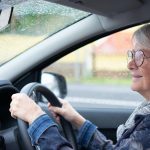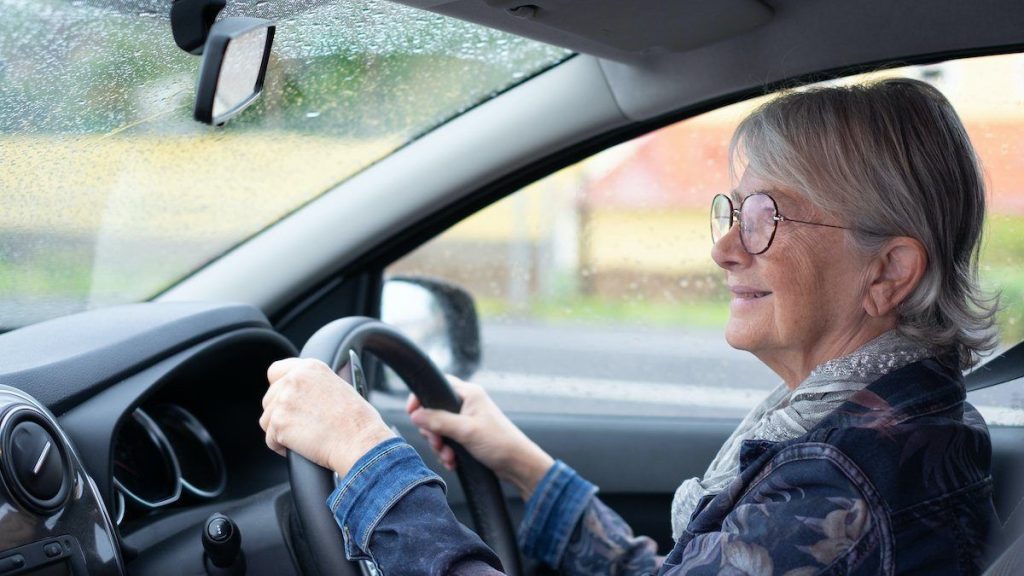The UK government has announced major changes to driving licence renewal rules for older drivers, set to take effect from September 2025. The goal is to strengthen road safety, simplify renewals, and provide additional support for senior motorists.
For the growing number of Britons over the age of 70, these updates mark an important shift. While the renewal system will remain free, drivers will now be expected to share more detailed health and eyesight information to confirm their fitness to drive.
These reforms aim to strike a balance between protecting road users and preserving independence for older citizens — many of whom rely on driving to stay active, connected, and self-sufficient.
Overview of the 2025 Licence Renewal Changes
The new policy, officially titled “UK Seniors Driving Licence Changes 2025,” introduces updated health declarations, modernized renewal options, and enhanced driver support.
Here’s how the new system compares with the existing rules:
| Category | Current Rules (Before Sept 2025) | New Rules (From Sept 2025) |
|---|---|---|
| Renewal Age | Every 3 years after age 70 | Every 3 years (unchanged) |
| Renewal Process | Paper/online forms | Streamlined online process |
| Medical Declaration | Basic self-declaration | Expanded health and eyesight check |
| Road Safety Support | Limited guidance | Extra refresher courses and resources |
| Cost of Renewal | Free | Free (unchanged) |
| Tests for Seniors | Not compulsory | No driving tests, but stricter health checks |
| Notifications | Limited reminders | Improved digital reminder system |
Renewal Age and Frequency (What Stays the Same)
Drivers aged 70 and above will still need to renew their licence every three years, as under current rules. This ensures that medical and eyesight standards are regularly reviewed.
The renewal remains free of charge, but from 2025, the online renewal system will become the preferred method, with a simplified interface tailored for seniors. Paper applications will still be accepted, but the digital platform is being promoted as faster, safer, and easier to use.
Why These Changes Are Being Introduced
The government says the changes are part of a broader strategy to support safer, more confident driving among older motorists.
The UK now has more than 5 million drivers aged 70 or over, and that number continues to rise. Officials from the Department for Transport (DfT) and DVLA say the update reflects the growing importance of medical awareness and technological accessibility in road safety policy.
A government spokesperson noted:
“We want older drivers to stay independent for as long as possible, but also ensure that every driver on the road meets essential safety and health standards.”
Medical and Eyesight Requirements (Expanded Health Checks)
The most significant update involves expanded medical declarations during the renewal process.
From September 2025, all senior drivers renewing their licence will need to:
- Confirm they meet minimum eyesight standards for driving.
- Disclose any relevant medical conditions, such as diabetes, heart issues, or cognitive changes.
- Provide, where requested, evidence from a GP or optician verifying their fitness to drive.
These requirements are designed to help identify potential safety risks early, while also giving older drivers access to medical guidance if needed.
The DVLA emphasizes that the system is not intended to punish or remove licences, but to protect drivers and others through preventive health checks.
Online Renewal Process: Easier and Faster
The DWP and DVLA have confirmed a major push towards digital renewals, aiming to make the process both faster and simpler.
Under the 2025 update:
- Seniors will be guided through a step-by-step online application.
- ID verification and medical declarations will be digitized.
- An improved reminder system will alert drivers months in advance of their renewal date.
This digital-first approach ensures fewer delays, clearer communication, and better access to guidance. However, paper renewals will remain available for those without reliable internet access.
Improved Notification and Reminder System
Many older drivers miss renewal deadlines simply because they forget when their licence expires. To tackle this, the 2025 system introduces automated reminders via post, email, or SMS.
These notifications will:
- Arrive at least 90 days before licence expiry.
- Include clear renewal instructions and digital links.
- Remind drivers about updated medical and eyesight rules.
This change aims to prevent accidental lapses in licence validity — a problem that has caused thousands of avoidable fines and insurance issues each year.
Road Safety Support and Refresher Courses
The new update also focuses on education and confidence-building for older drivers.
For the first time, the government will provide free or subsidized refresher sessions through local councils and driving organisations. These sessions will cover:
- Updated Highway Code rules.
- New traffic systems such as smart motorways and low-emission zones.
- Awareness training for modern vehicle technology (lane assist, EVs, etc.).
The aim is to help senior drivers adapt to evolving road environments without fear or confusion. These voluntary courses will also help reduce anxiety for those who haven’t taken a test in decades.
Impact on Senior Drivers’ Daily Lives
For many, driving is not just a means of travel — it’s a symbol of independence and dignity.
The 2025 updates recognise that reality.
While the rules require more transparency around health and eyesight, they also introduce new supportive measures to help seniors stay safely on the road longer.
No formal driving tests are being introduced. However, the strengthened checks will identify medical risks early, allowing intervention before serious accidents occur.
For those living in rural or remote areas, where public transport options are limited, the government says it will ensure that renewal processes remain “accessible and fair to all.”
Safety and Public Response
Road safety experts have largely welcomed the 2025 changes. Many have praised the government for focusing on prevention rather than punishment.
However, some pensioner groups have expressed concern about potential confusion over medical disclosures and digital applications. To address this, the DVLA will provide dedicated helplines and local support centres to assist older motorists with renewals.
Neil Greig, Director of Policy at IAM RoadSmart, said:
“These changes strike the right balance. We’re keeping experienced older drivers on the road while ensuring health standards are properly monitored.”
What Senior Drivers Should Do Now
If you’re nearing 70 or already over it, preparing early can make renewal stress-free. Here’s what experts recommend:
- Get an eyesight test every year – even if you already wear glasses.
- Monitor your health changes – report any medical condition that could affect driving.
- Use the online renewal service for faster approval and fewer errors.
- Update contact details with DVLA to receive reminders.
- Take a refresher course to stay confident and up-to-date with modern road rules.
These steps ensure your renewal goes smoothly and help maintain safe, independent driving well into your senior years.
FAQs
1. Will over-70 drivers need to take a new driving test under the 2025 rules?
No. There are no mandatory driving tests for seniors. The updates focus on medical and eyesight declarations, not driving ability exams.
2. How often do senior drivers need to renew their licence?
Every three years after turning 70. This requirement remains unchanged under the 2025 reforms.
3. What happens if a medical condition affects my driving?
You must declare it during renewal. The DVLA may request medical evidence but will work to support safe driving, not automatically revoke licences.
4. Can seniors still renew by post instead of online?
Yes. While digital renewals are encouraged, paper renewals remain available for those without internet access.
5. Will the new rules make it harder for seniors to drive?
No. The goal is to make renewals simpler, safer, and more transparent, helping seniors stay independent while maintaining road safety.



















